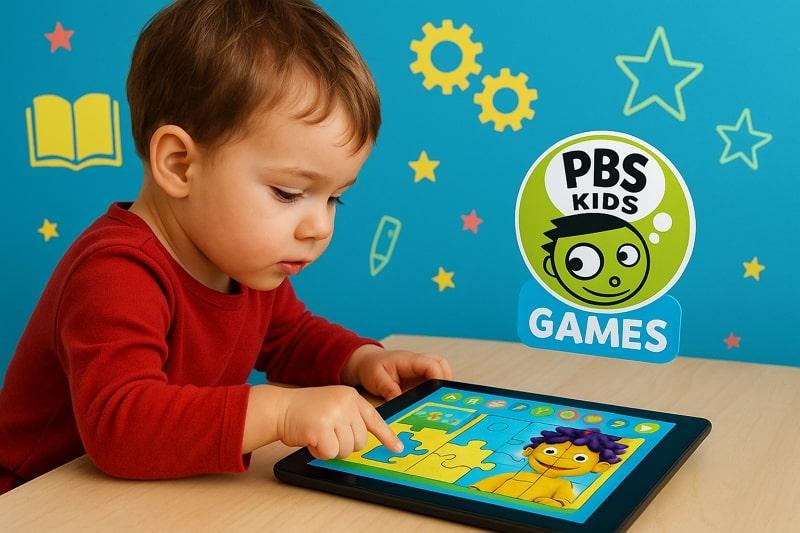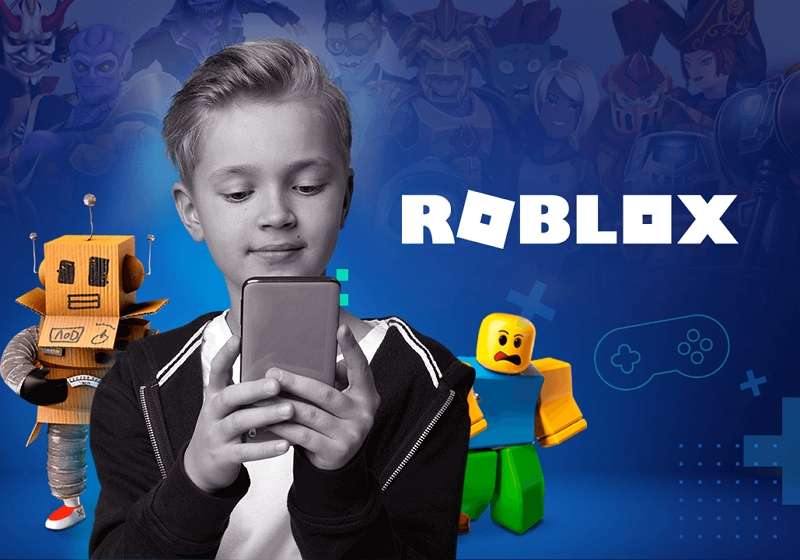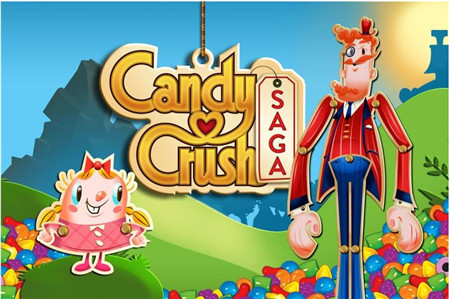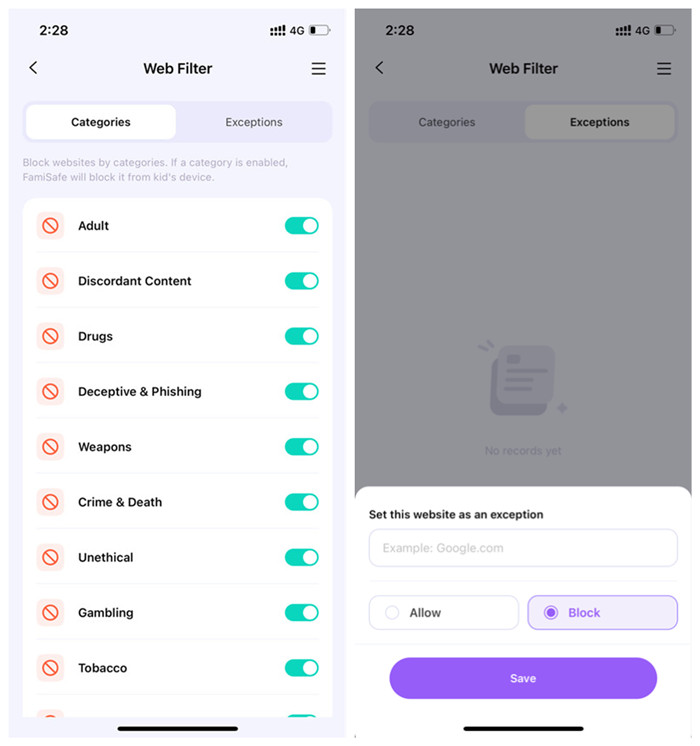Top 12 Games Not Blocked by School That Parents Should Know
Top Game Sites Not Blocked by School
ALL TOPICS
- Game Parental Control
-
- Set up parental controls on Roblox
- Nintendo switch parental controls
- How to block all game websites?
- Stardew Valley Parent Guide
- How to Set up Parental Control on Valorant?
- Is Call of Duty Safe for Kids?
- What is Far Cry? Parent Guide
- Block Discord on Computer, Phone and Chromebook
- Is Obey Me! Game Safe for Kids?
- How to Block TikTok from Router
- Epic games parental controls
- Block Free Fire Game through Different Ways
- 10 Best Board Games for 8 Year Olds You Can' t Miss
- Game Review
- Limit Screen Time
Dec 12, 2025 Filed to: Block Games Proven solutions
Is your child spending hours on games that schools haven't blocked? You're not alone. While schools implement firewalls to protect students, numerous addictive and potentially harmful games remain accessible - from educational gaming sites that seem harmless to highly addictive mobile games that bypass school restrictions.
As a parent, you need to know which game sites not blocked by schools your child might be accessing, understand the real risks these games pose, and learn how to protect your child from gaming addiction. This comprehensive guide will help you identify these unblocked games, recognize the dangers they present, and provide you with practical solutions to keep your child safe online.

Table of Content
Part 1: 5 Educational Game Sites Not Blocked by Schools
Many schools allow access to educational and learning-based game websites because they appear to support academic goals. However, as a parent, you should be aware that even "educational" games can become addictive distractions that prevent children from focusing on their actual schoolwork. While these sites may have legitimate educational value, they can still consume hours of your child's time and interfere with their studies. Here are five educational game sites that schools typically don't block, but parents should monitor:
1. Cool Math Games
Parents should be aware: Cool Math Games is one of the most popular educational gaming websites that schools rarely block. While it does offer math-related games, the site also contains numerous non-educational games that are purely entertainment-based. The problem is that children often spend hours playing these games instead of doing their actual homework or studying. The site's game-like interface makes it highly engaging and addictive, which can lead to excessive screen time and distraction from academic responsibilities. Parents should monitor their children's usage of this site and consider setting time limits.
2. Hooda Math
Parents should be aware: Hooda Math is a math-focused educational gaming website that schools typically allow because it appears to support mathematics learning. However, the gamified nature of these activities can make children prioritize gaming over actual learning. While the games do involve math concepts, children may spend excessive time playing rather than completing their assigned homework or studying for tests. The reward-based system in these games can be particularly addictive, leading to extended play sessions that interfere with study time and sleep schedules.
3. Prodigy Math
Parents should be aware: Prodigy Math is a popular math-based RPG (role-playing game) that many schools encourage because it combines gaming with mathematics practice. However, this game is designed to be highly addictive with its RPG elements, character progression, and in-game purchases. Children can become so engrossed in leveling up their characters and exploring the game world that they spend hours playing, often during time that should be dedicated to homework or other activities. The game's freemium model also includes in-app purchases that can lead to unexpected charges. Parents should closely monitor their children's usage and spending on this platform.
4. Scratch
Parents should be aware: Scratch is a programming platform developed by MIT that allows children to create interactive stories, games, and animations. While it has legitimate educational value for teaching coding concepts, children can spend excessive amounts of time creating and playing games on this platform instead of focusing on their school assignments. The social features of Scratch allow children to share and play games created by others, which can lead to hours of entertainment that distracts from academic work. Additionally, the platform includes a community aspect where children can interact with other users, which requires parental supervision to ensure safe online interactions.
5. PBS Kids Games

Parents should be aware: PBS Kids Games is an educational gaming website based on popular children's television shows. While the content is age-appropriate and educational, the engaging nature of these games can still lead to excessive screen time and distraction from homework Children may spend extended periods playing these games, especially younger children who may not have the self-regulation skills to limit their playtime. The colorful, interactive interface makes these games highly appealing, which can make it difficult for children to transition back to their schoolwork. Parents should set clear time limits for educational gaming, even on platforms that appear beneficial.
Part 2: 7 Highly Addictive Games That Schools Don't Block
While schools block many violent or inappropriate games, there are numerous addictive games that remain accessible to students. As a parent, it's crucial to understand that these games are specifically designed to be engaging and habit-forming, which can lead to excessive playtime, academic decline, and behavioral issues. Here are seven highly addictive games that schools typically don't block, but parents should be extremely concerned about:
1. Roblox

Parents should be extremely concerned: Roblox is one of the most popular and dangerous games that schools rarely block. This platform allows users to create and play millions of games, but it has serious safety concerns that parents must understand. The platform includes built-in chat features that can expose children to strangers, inappropriate content, and potential online predators. Children can spend real money on in-game purchases without proper parental controls, leading to unexpected charges. The game's addictive nature, combined with its social features, can cause children to spend hours playing instead of doing homework or sleeping. This is one of the most concerning games not blocked by schools that parents must actively monitor and consider blocking on their children's devices.
2. Fortnite

Parents should be extremely concerned: Fortnite is a highly addictive battle royale game that has become extremely popular among teenagers and even younger children. This game is designed to be highly addictive with its constant updates, battle pass system, and social features. The game includes in-game purchases, voice chat with strangers, and competitive elements that can lead to excessive playtime. Many children become so obsessed with Fortnite that they skip meals, lose sleep, and neglect their schoolwork. The game's violent nature, while cartoonish, can still desensitize children to violence. Parents should monitor their children's Fortnite usage closely and consider setting strict time limits or blocking the game entirely.
3. PUBG Mobile

Parents should be extremely concerned: PUBG Mobile (PlayerUnknown's Battlegrounds) is a violent multiplayer battle royale game that is extremely popular among teenagers. This game contains realistic violence, weapons, and combat scenarios that are inappropriate for children. The game includes built-in voice and text chat features that can expose children to inappropriate language and strangers. The competitive nature of the game, combined with its reward system, makes it highly addictive. Children can spend hours playing PUBG Mobile, leading to sleep deprivation, academic decline, and social isolation. This is one of the games not blocked by schools that parents should immediately block on their children's Android or iOS devices.
4. Among Us

Parents should be aware: Among Us is a social deduction game that became extremely popular during the pandemic. While the game appears harmless with its cartoon graphics, it can be highly addictive due to its social interaction elements and quick gameplay sessions. The game requires players to communicate with others, which can expose children to inappropriate language or conversations. The game's short rounds make it easy for children to justify "just one more game," leading to extended play sessions. Additionally, children may form online friendships with strangers through this game, which requires parental supervision. Parents should monitor their children's Among Us playtime and ensure they understand online safety.
5. Candy Crush Saga

Parents should be aware: Candy Crush Saga is a deceptively simple puzzle game that is highly addictive. While it may seem harmless, this game is specifically designed to keep players engaged through psychological manipulation techniques. The game uses limited lives, time-based challenges, and in-app purchases to create addiction. Children can spend hours trying to complete levels, often during time that should be dedicated to homework or sleep. The game's colorful graphics and satisfying sound effects trigger dopamine releases in the brain, making it difficult for children to stop playing. Parents should set strict time limits for this game and monitor in-app purchases to prevent unexpected charges.
6. Subway Surfers

Parents should be aware: Subway Surfers is an endless runner game that appears harmless but can be highly addictive. The game's endless nature means there's no natural stopping point, which can lead to extended play sessions. The game uses reward systems, daily challenges, and character progression to keep players engaged. While the game is not violent, it can still cause eye strain, sleep deprivation, and distraction from academic responsibilities. Children may spend hours trying to beat their high scores or complete daily missions, often during time that should be spent on homework or other activities. Parents should monitor their children's Subway Surfers usage and set clear time limits.
7. Minecraft

Parents should be aware: Minecraft is often praised for its educational value and creativity, but this game can be extremely addictive and time-consuming for children. While the game does promote creativity and problem-solving, children can spend hours building, exploring, and playing in Minecraft worlds, often at the expense of their homework and sleep. The game's open-ended nature means there's always something new to do, making it difficult for children to stop playing. Additionally, Minecraft's multiplayer features can expose children to strangers and inappropriate content. The game's modding community also includes content that may not be age-appropriate. Parents should set strict time limits for Minecraft and monitor their children's online interactions within the game.
Related articles for parents:
Part 3: Why Unblocked Games Are Harmful to Your Child
While schools block many inappropriate games, numerous addictive games remain accessible to students. These games can seriously harm your child's academic performance, health, and online safety. Here are the key risks:
- Academic decline: Hours spent gaming replace homework and study time, leading to poor grades and sleep deprivation
- Physical health issues: Eye strain, poor posture, obesity, and sleep disorders from excessive screen time
- Mental health problems: Anxiety, depression, mood swings, and reduced empathy from gaming addiction
- Online safety risks: Exposure to strangers, inappropriate content, cyberbullying, and unexpected in-app purchases
- Social isolation: Reduced face-to-face interaction and poor communication skills development
The good news: You can protect your child with the right strategies and tools. In the next section, we'll show you practical solutions to control your child's gaming habits and ensure their safety online.
Part 4: How to Protect Your Child from Unblocked Game Addiction
Protecting your child from unblocked game addiction requires a multi-layered approach. Here are practical strategies you can implement immediately:

1. Set Clear Rules and Boundaries
- Establish screen time limits: Set specific daily or weekly gaming time limits based on your child's age and responsibilities
- Create a schedule: Designate specific times for gaming (e.g., only after homework is completed, weekends only)
- Define consequences: Clearly communicate what happens if rules are broken (e.g., reduced gaming time, device confiscation)
- Lead by example: Model healthy screen time habits yourself to reinforce the importance of balance
2. Open Communication and Education
- Discuss the risks: Have age-appropriate conversations about gaming addiction, online safety, and the importance of balance
- Listen to your child: Understand why they enjoy gaming and address underlying needs (social connection, stress relief, etc.)
- Set expectations: Explain why certain games are restricted and help them understand the reasoning behind your rules
- Encourage alternatives: Help your child discover other hobbies and activities they enjoy
3. Use Parental Control Technology
While communication and rules are essential, parental control software provides an additional layer of protection that works even when you're not physically present. These tools can help you monitor, limit, and block access to games and inappropriate content.
4. Try FamiSafe - Comprehensive Parental Control Solution
Managing your child's gaming habits can be challenging, especially with busy schedules. Wondershare FamiSafe is an all-in-one parental control app that helps you protect your child from game addiction and online dangers. Here's how FamiSafe can help:
Web Filtering & SafeSearch
Block access to gaming websites and inappropriate content. Add specific websites and keywords to your block list, and receive instant alerts if your child attempts to access them.

App Blocking
Block specific games and apps on your child's device, whether they're already installed or not. This prevents your child from accessing addictive games even when you're not around.

Screen Time Management
Set daily or weekly screen time limits for the entire device or individual apps. This helps ensure your child balances gaming with homework, sleep, and other activities.

- Web Filter & SafeSearch
- Screen Time Limit & Schedule
- Location Tracking & Driving Report
- App Blocker & App Activity Tracker
- YouTube History Monitor & Video Blocker
- Social Media Texts & Porn Images Alerts
- Works on Mac, Windows, Android, iOS, Kindle Fire, Chromebook
Conclusion
Protecting your child from unblocked game addiction requires awareness, communication, and the right tools. Here's what you need to remember:
- Educational games aren't always safe: Even "educational" gaming sites like Cool Math Games and Prodigy Math can become addictive distractions that interfere with homework and sleep
- Popular games pose serious risks: Games like Roblox, Fortnite, and PUBG Mobile expose children to strangers, inappropriate content, and can lead to gaming addiction
- The consequences are real: Unblocked games can cause academic decline, physical health issues, mental health problems, and online safety risks
- You have the power to protect: By setting clear rules, maintaining open communication, and using parental control tools like FamiSafe, you can effectively manage your child's gaming habits
Take action today: Don't wait until gaming becomes a serious problem. Start by having an honest conversation with your child about gaming, establish clear boundaries, and consider using FamiSafe to monitor and control their access to games that are not blocked by schools. Your child's safety and well-being depend on your proactive approach.
Frequently Asked Questions (FAQ)
Q1: Why don't schools block all gaming websites?
Schools typically block obviously violent or inappropriate games, but many educational gaming sites and mobile games remain accessible because they appear harmless or educational. Additionally, students often find ways to bypass school firewalls using VPNs, proxy servers, or mobile data connections.
Q2: Are educational games like Cool Math Games really harmful?
While educational games can have legitimate learning value, they can still become addictive distractions. The problem isn't the educational content itself, but the excessive time children spend playing instead of doing homework or sleeping. Even "educational" games use gamification techniques designed to keep players engaged for extended periods.
Q3: How can I tell if my child is addicted to unblocked games?
Warning signs include: spending hours gaming daily, neglecting homework and chores, becoming irritable when unable to play, declining academic performance, sleep deprivation, and losing interest in other activities. If your child shows these symptoms, it's time to take action.
Q4: Can I completely block all games on my child's device?
Yes, using parental control software like FamiSafe, you can block specific games, gaming websites, and even set time limits. However, a balanced approach combining rules, communication, and technology is more effective than complete restriction, which may cause children to find workarounds.
Q5: What should I do if my child is already addicted to games not blocked by schools?
Start by having an open, non-judgmental conversation about gaming habits. Set clear boundaries gradually (sudden restrictions can cause conflict), use parental control tools to enforce limits, encourage alternative activities, and consider seeking professional help if the addiction is severe.
Q6: Are there any safe games that schools don't block?
While some educational games have legitimate value, no game is completely "safe" if it leads to excessive playtime or interferes with academic responsibilities. The key is moderation and parental supervision, regardless of whether a game appears educational or harmless.




Joanne Croft
staff Editor